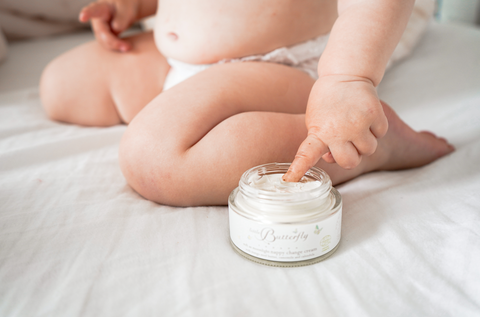Navigating the Newborn Period
Captivating Baby Moments: Delve of Our Journey

Make day and night drastically different
If you want to get something resembling a good night’s sleep in the near future, make it your mission to help baby learn to distinguish day from night. This means exposing your infant to noises and daylight during the day and keeping nighttime about quiet and darkness. When baby wakes at night, make your encounter all business: Feed them, burp them, change them and put them back in the crib. Save conversation and playtime for daytime.
Let baby sleep in your room
Invest in a bed-side bassinet or wheel in the crib so baby can sleep in your room (but not your bed) during those early weeks. Not only does room-sharing decrease the risk of SIDS, it also makes getting used to middle-of-the-night feedings less stressful, since you’ll barely have to leave your bed. If you’re bottle feeding, consider storing some supplies right in your room.
Keep baby comfy
New parents have the tendency to over-bundle baby. As a rule of thumb, put your newborn in one extra layer than what you’re comfortable in. So if you’re fine in a T-shirt in your house, put baby in a lightweight onesie with a swaddled blanket over it. Look to your little one for cues: If their hands feel cold, their head looks sweaty or they develop heat rash, dress them up or down accordingly. Babies tend to feel a little warmer to the touch. Try to get in lots of skin-to-skin bonding time in the hospital and the days after so you start learning what baby’s normal body temperature feels like.

Let go of perfection
Baby isn’t going to keep a predictable schedule anytime soon, so don’t expect them to. Instead, follow the tried-and-true “sleep when baby sleeps” advice. That means forgetting about the sink full of dirty dishes and taking a nap—because you never know when you’ll get your next opportunity. Rest is definitely more important than cleaning in these first few weeks.
Keep a mental checklist
Adjusting to life outside the womb is exhausting, and newborns tend to sleep a lot (at least during the first several days). That means baby may not be as vocal as you were expecting that first week. But if baby is crying and you don’t know how to make them stop, don’t freak out. It takes a while to get to know what baby needs, and until you do, simply rely on trial and error. First, start with the basics. Could baby be hungry or have a dirty diaper? Try feeding or changing them. Once you’ve ruled those out, consider your infant’s comfort level. Are they hot? Cold? Do they just need something soothing? Adjust the thermostat or their clothing, hold them close and rock them or play music or white noise until something starts to work. It’s okay—and totally normal—if you’re not able to read baby like a book right away. It’ll come with time.
Seek help
Frequent crying or fussing can be stressful, but take comfort in knowing the crying itself doesn’t hurt baby. And because it’s too much to deal with every single cry yourself—especially in those first few weeks home when you’re exhausted and overwhelmed—remember to accept help from your partner and others as much as possible so you get a break. If you suspect something’s wrong (you’ve got those parental instincts now!), take baby to the pediatrician. They could have a chronic condition, such as reflux or a protein allergy, both of which are treatable, and babies usually grow out of them—whew!

Read baby’s signals
So how much are you supposed to feed baby, anyhow? If you’re nursing, it’s hard to tell, since you won’t have bottles with ounce markings to gauge baby’s intake. But luckily, babies seem to know when they’ve had enough. Regardless of whether baby is breast- or bottle-fed, they should seem drowsily content right after eating, and in that first week as well as the next few, they’ll probably fall asleep for two or three hours once they’re full (hello, milk coma!). Be careful, though—some babies want to suck on something, whether they’re hungry or not. If sucking on a finger or pacifier calms baby, then they don’t need to eat any more.
Do diaper checks
The other indicator that baby is eating enough is their output, so keep track of those diapers (your doctor might ask for specific numbers at checkups). In the first four days, newborns may only pee two to four times a day, but then they should start to wet about 6 to 12 diapers daily. As for newborn poop, the number isn’t so straightforward. Baby should poop at least once in the first 24 hours, but if not, 98 percent of babies poop by the second day. From then on baby could soil five or more diapers a day (especially if you breastfeed), or they could go up to 7 to 10 days without a dirty diaper and be perfectly healthy (as long as they’re not showing signs of discomfort). Just beware of hard, pellet-like poop; it could be a sign baby is constipated.
Know your colors
Within baby’s first couple of days, they’ll have a black stool known as meconium—that’s a product of all the stuff they “ate” in utero. After that, for an exclusively breastfed baby, newborn poop will get lighter brown before turning yellow with a seedy look to it. But no matter how you feed baby, their poop could be yellow, brown or green—all of which are totally normal. If it’s red, black (beyond those first couple days) or white, though, it could mean there’s a problem, so notify baby’s pediatrician if you see any of those weird colors.
Keep an eye on weight
Bet you didn’t know baby will likely lose up to 10 percent of their birth weight in the first three to seven days. Well, it’s true and it’s totally normal—they’re just shedding some of that fluid retained from the womb, plus they’re burning more calories now that they’re free to move around. After that, baby may gain about 5 to 7 ounces a week during the first month. Your pediatrician will help you measure and track baby’s progress and alert you if their weight gain or loss is a cause for concern.
Be flexible
Like we mentioned before, baby doesn’t know how to follow a clock. Sure, there are newborns who are perfectly fine eating every three hours on the dot. If yours is one of those, lucky you! Others might be hungry closer to every two hours, or “cluster feed,” meaning they want what seems like back-to-back feedings. (This tends to be common in the evening, so be prepared.) Seeing how some babies take as long as 45 minutes for a feeding, you might have days where you feel like all you’ve done is feed your baby. That’s totally normal. And on those days, remember: That’s a very important thing to have accomplished!
About the Expert:
Cheryl Wu, MD, is a pediatrician at LaGuardia Place Pediatrics in New York City and a clinical assistant professor of pediatrics at NYU Grossman School of Medicine. She earned her medical degree from the University of Medicine & Dentistry of New Jersey in 2003.
Please note: The Bump and the materials and information it contains are not intended to, and do not constitute, medical or other health advice or diagnosis and should not be used as such. You should always consult with a qualified physician or health professional about your specific circumstances.



